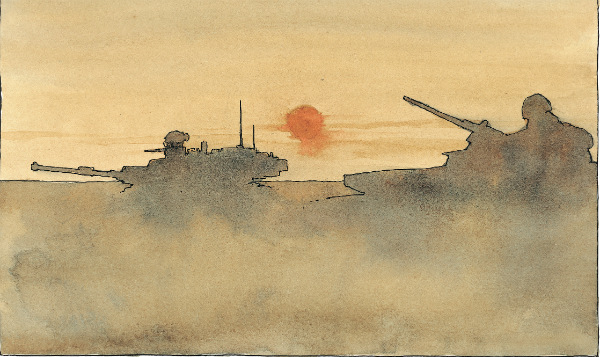I crashed there like a meteor. In the summer of 2005, I touched down in the Midwest after having lived in urban locations ranging from Marseilles and Paris in France to Berlin. I had never heard the name of the city of South Bend but I soon realized it wouldn’t be possible to view it through European lenses.
This was my first experience of complete immersion, though I already had ideas about the United States, having spent time in Los Angeles, as well as New York City… and in movie theatres, of course. In France and Germany, I had demonstrated against the war in Iraq. When I headed across the Atlantic, I thought I would arrive to a country at war. I thought everyone would be eager to talk about it, that most families had someone, or at least knew someone, who was deployed.
This was not the case. I occasionally saw bumper stickers like “Proud Mom of a soldier in Iraq.” “How is your warrior doing?” I asked one of those Moms at a gas station. “We’re just praying!” She was terribly anxious. After the apparent popular support that prompted the invasions of Afghanistan and Iraq, it seemed to me that the soldiers’ families were now isolated and forgotten.
There are thousands of Jeffs in the US today. But they are not numbers. They are our sisters, our brothers, our children.
Two years later, on a gloomy, snowy day, I sat in my car, listening to a short piece on NPR about the alarming suicide rate among Iraq and Afghanistan war veterans. I couldn’t take it.
Why is it that all of a sudden, it got so unbearable? As I tried to chase those painful emotions, a huge black Humvee passed me by: the ghost of a soldier in full gear was staring at me with red eyes. That cinematic after-image lasted. I began to be haunted.
Who is the person who started to investigate the subject of military suicide on his spare time back then? The grandson of a French WWII soldier and resistor who died from post-traumatic stress at the age of 50? The new father? The Notre Dame professor? The European? The future US citizen?
To this day, I still don’t know. I’m still in the gloom. But it was Jeffrey M. Lucey who prompted me to act out, to film a documentary about these veterans, and write this graphic novel.
There are thousands of Jeffs in the US today. But they are not numbers. They are our sisters, our brothers, our children.
Their ghosts will not belong to the gloom.
—Olivier Morel
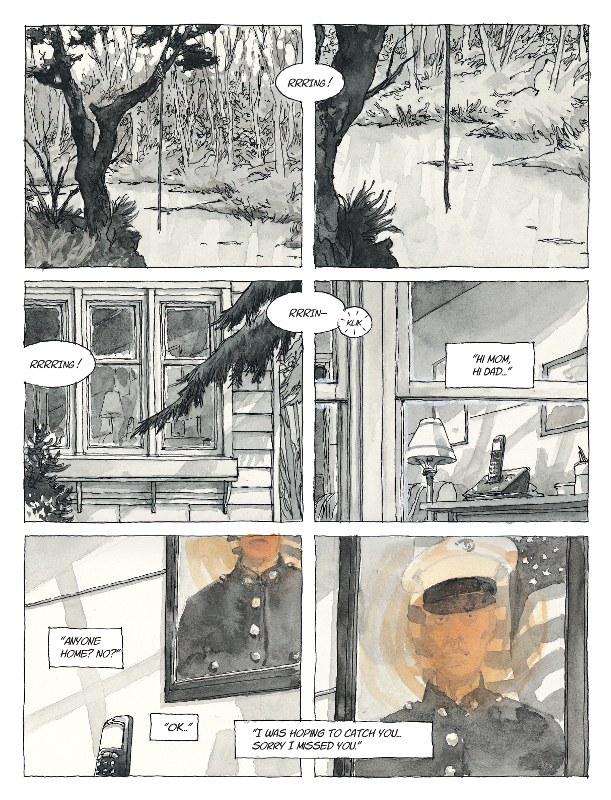
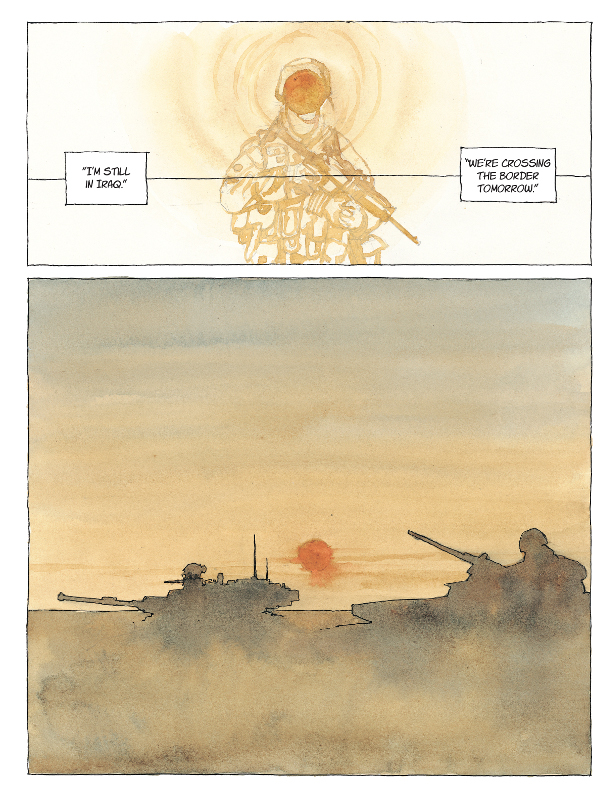
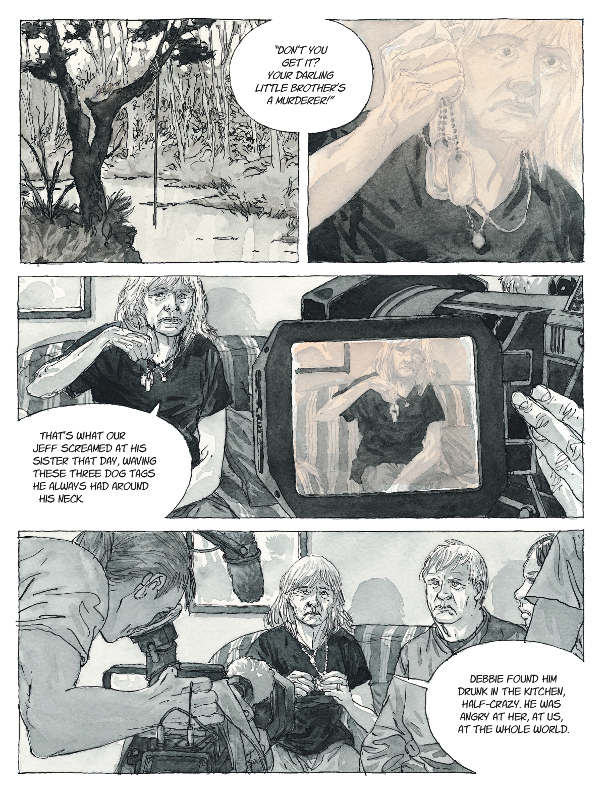
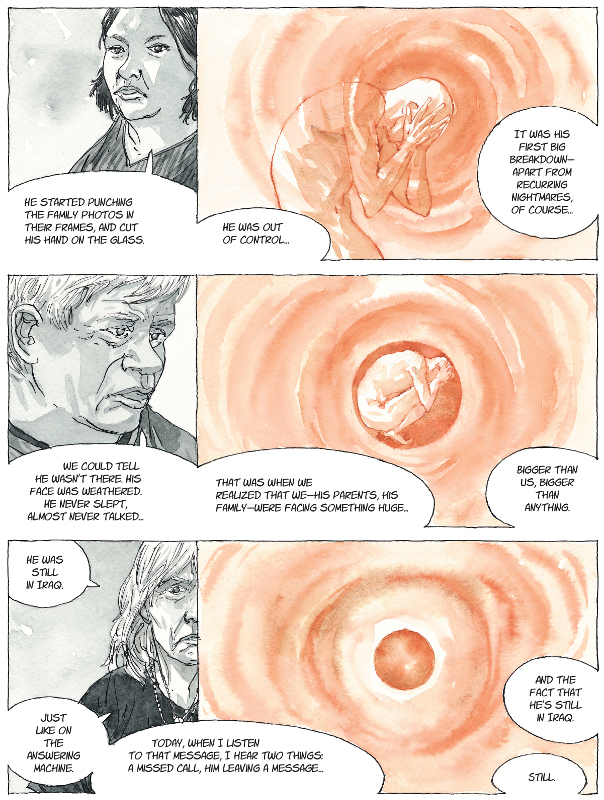
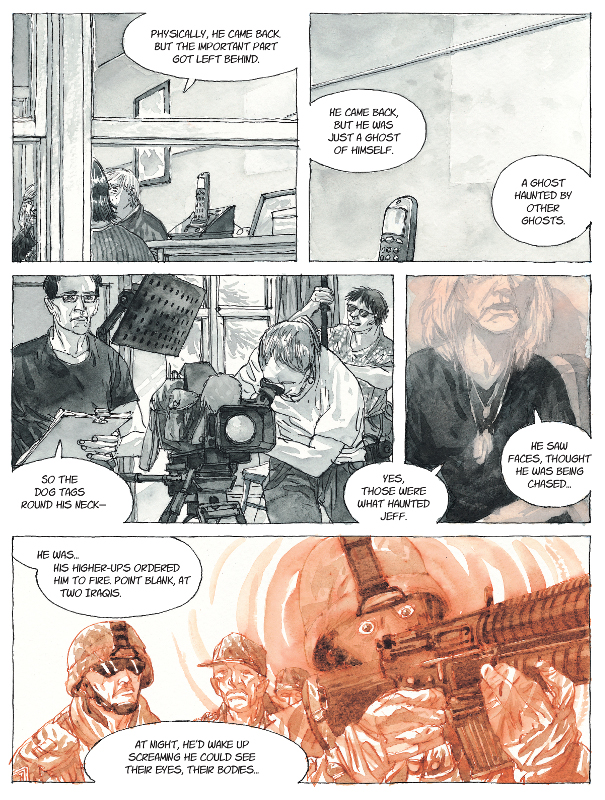
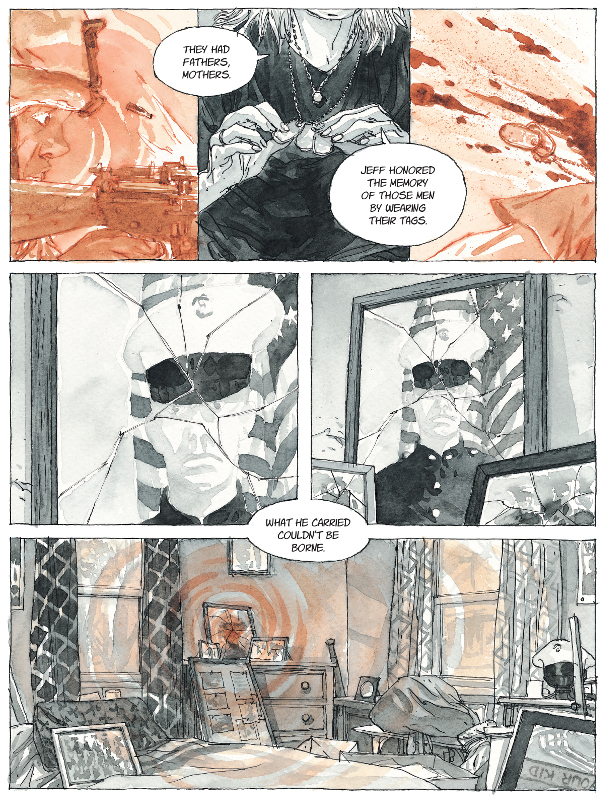
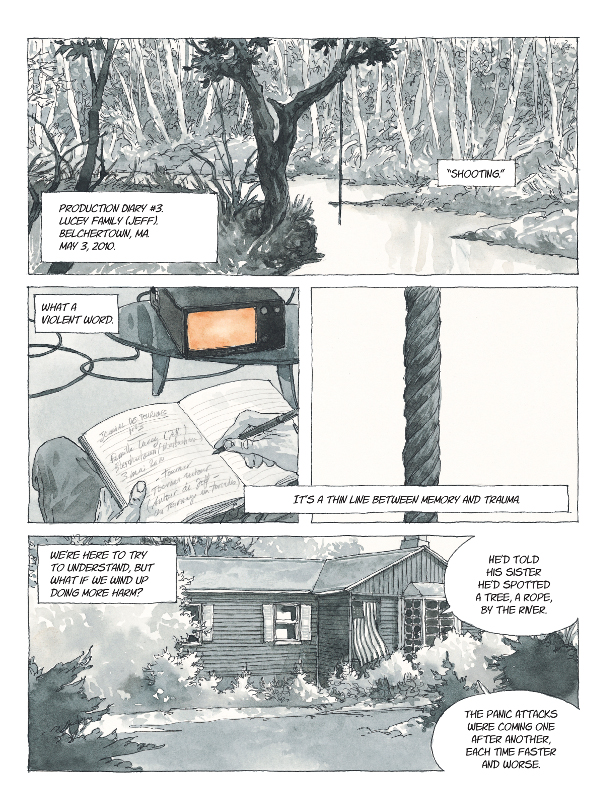
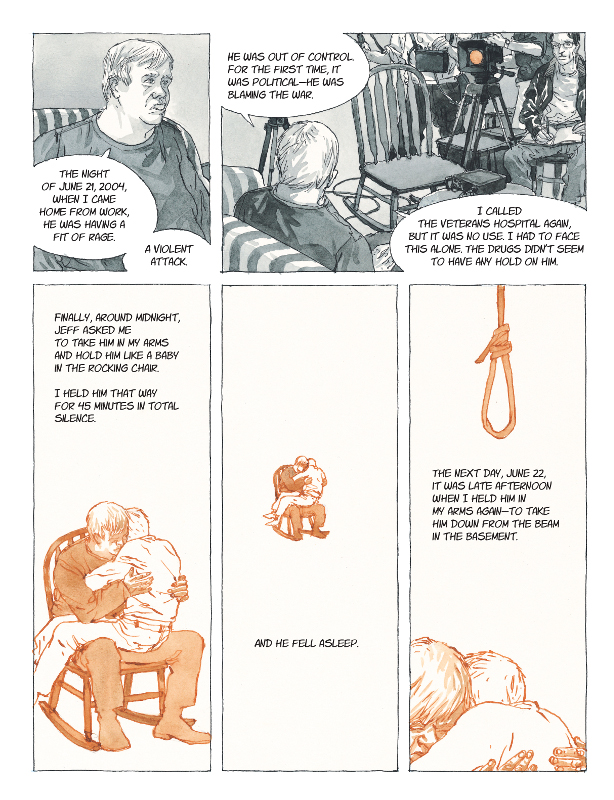
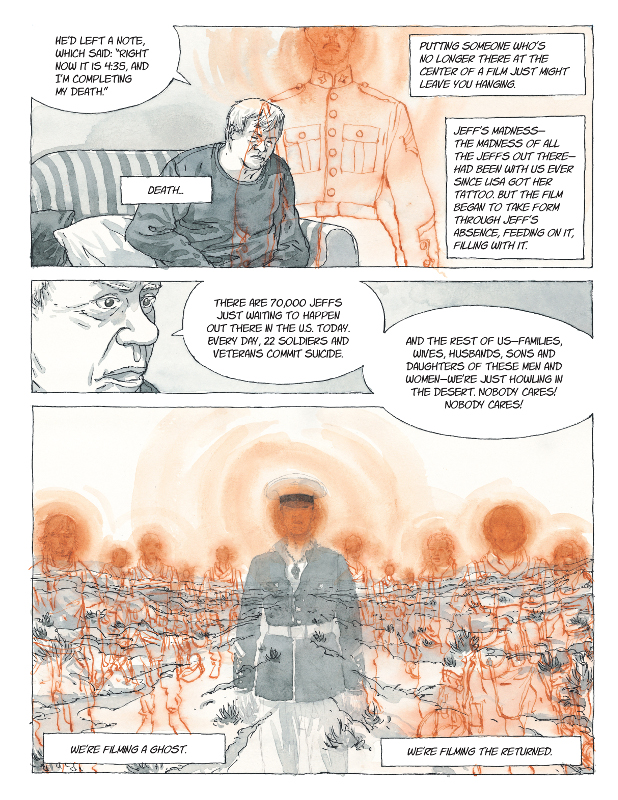
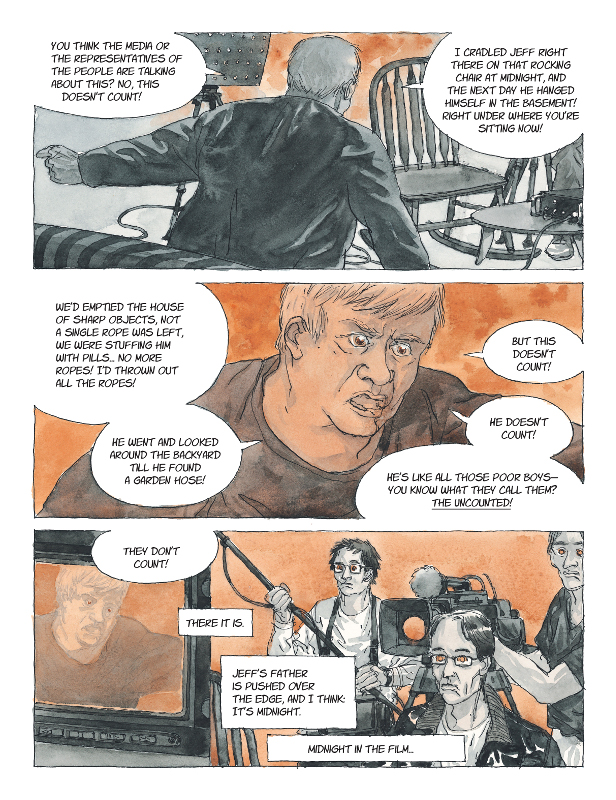
Translated by Edward Gauvin
Lettering by Mercedes Claire Gillom
